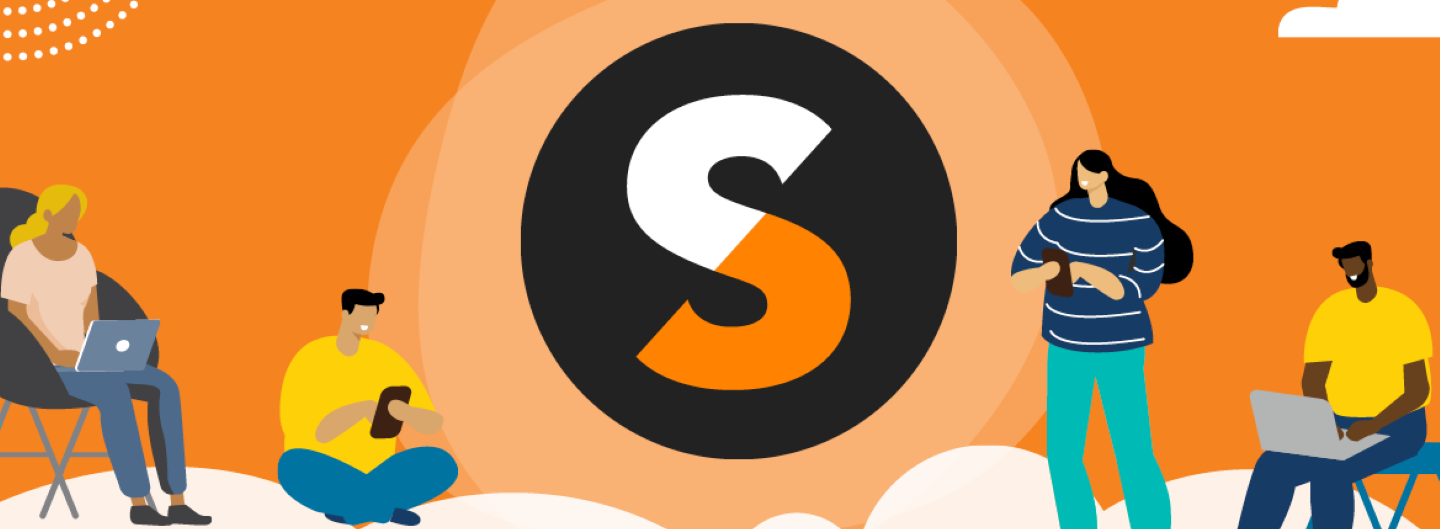What's new in library tech! Welcome to our monthly collection of fun and hopefully useful news items from our great twitter feed and wherever else we find them.
Library buildings have been closed now for many weeks, and many libraries are in the process of phased reopenings. We bring you news on how to protect patrons and your library if you do health screenings, new lower pricing for the upcoming ALA Virtual Conference, what the new $3 trillion HEROES Act Bill would mean for libraries, and also ALA's open letter to Congress calling for emergency funding for libraries. We also cover some fun things like the Library of Congress' new Citizen DJ Project and the StoryCorps Connect Project so your patrons can record their own StoryCorps interviews. We also cover Bohyun Kim's new book on the future of library tech and Julie Andrews' new kids books podcast.
Here's your library tech newsbytes for the cautiously reopening month of June.
When Reopening: How to Do Patron Health Screenings
ALA's Voices of Privacy Blog reports that as libraries open, libraries may well want patrons to complete a brief COVID-19 health screening prior to entering the building. Collecting health data from all library users brings considerable risk to both the library and its users. They have lots of recommendations for lowering risks. Chief among them is to ensure that the screening process does not target one part of the library user population more than the rest through inconsistent screening across all users.
The June ALA Virtual Conference Is Now $60 or Free for ALA Members
You probably know that ALA is holding its ALA Virtual Conference online June 24 – 26. The big news is it's now $60 for ALA members to attend the three-day online event. To get that rate, use promotion code CONNECTION when you register. Everyone who registered for the original 2020 ALA Annual Conference is automatically registered for ALA Virtual. If ALA members have been recently been furloughed, laid off, or are experiencing a reduction of paid work hours, ALA invites them to join the conference for no cost at all. During the registration process, you can indicate your circumstance to receive your complimentary registration. Don't wait to register, though. Registration closes at midnight on Wednesday June 17 (Central time). Register here.
What the $3 Trillion HEROES Act Would Mean for Libraries
Allister Chang of Library Journal reports that the new Health and Economic Recovery Omnibus Emergency Solutions (HEROES) Act that recently passed in the House of Representatives has some pretty interesting provisions for libraries.
The HEROES Act mentions libraries in two broad categories:
- $1.5 billion for the "Emergency Connectivity Fund," which includes funding for schools and libraries to provide Wi-Fi hotspots and other telecommunications equipment and information services, including modems, routers, and connected devices.
- $5 million dedicated to the Institute of Museum and Library Services (IMLS), supplementing the $50 million already allocated to IMLS by the CARES Act, "to prevent, prepare for, and respond to coronavirus, including grants to States, territories, tribes, museums, and libraries, to expand digital network access, purchase internet accessible devices, provide technical support services, and for operational expenses."
In addition to funds in the HEROES Act explicitly allocated for libraries, many libraries may be eligible to receive HEROES Act funding allocated to local governments that will have the power to decide on how to spend their allocations. The bill is still under skeptical consideration by the U.S. Senate and the White House.
Business, Government, and Education Leaders Sign an Open Letter to Congress Calling for Emergency Funding for Libraries
In related news, ALA News reports that business, government, and education leaders have signed an open letter to the U.S. Congress to advocate for emergency funding for libraries impacted by COVID-19 layoffs. They're asking Congress to provide $2 billion for fiscal stabilization for libraries through the federal Institute of Museum and Library Services. Signatories to the ALA-sponsored letter include the National League of Cities, OverDrive, and the American Federation of Teachers, among many others.
The Citizen DJ Project
Here's a fun thing for young patrons. Ilovelibraries.org reveals a new tool from the Library of Congress called the Citizen DJ Project. It was developed by innovator-in-residence Brian Foo to let anyone remix audio clips and history. The online tool provides a simple interface for exploring the library's extensive audio collections, as well as a platform for combining these samples with hip-hop beats. Creators can also download "sample packs" featuring a vast array of sound clips that they can upload into their music production programs of choice.
StoryCorps Partners with Libraries to Keep Communities Connected
Another report from Ilovelibraries.org tells us that the American Library Association is partnering with StoryCorps to launch StoryCorps Connect. You may have heard some StoryCorps segments on NPR. StoryCorps Connect is an interactive platform for recording stories remotely. It was developed in March 2020 in response to the COVID-19 pandemic as a first-of-its-kind platform that enables your patrons to record a StoryCorps interview with a loved one remotely, using video conference technology. Like all StoryCorps interviews, the recordings from StoryCorps Connect will be preserved and cataloged in the American Folklife Center at the Library of Congress for future generations to explore.
Bohyun Kim's New Book, Moving Forward with Digital Disruption
We have featured Bohyun Kim on TechSoup for Libraries before. She is chief technology officer and associate professor at University of Rhode Island Libraries. Her new book is Moving Forward with Digital Disruption: What Big Data, IoT, Synthetic Biology, AI, Blockchain, and Platform Businesses Mean to Libraries. She writes in American Libraries: "The fourth industrial revolution is well underway. Recent breakthroughs in machine learning and artificial intelligence (AI) enable machines to handle tasks previously restricted to humans, including image classification, translation, speech recognition, and medical diagnosis. In every corner of the world, technologies are disrupting industries and bringing rapid changes to the way we live, work, and interact." She predicts that demand will increase for library professionals who are knowledgeable and skilled in data analytics.
Julie Andrews' New Kids Books Podcast
NPR reports that Julie Andrews — yes that Julie Andrews — and her daughter, Emma Walton Hamilton, have started hosting a new kids' book podcast called Julie's Library. Beyond the 20-minute story segments, the project hosts a newsletter with book recommendations and activities.
We hope you find our new batch of newsbytes helpful this month!







